Russia and India recently agreed to jointly manufacture a military transport plane. In an e-mail interview, Seema Desai, a London-based analyst in Eurasia Group’s Asia practice, discusses India-Russia defense relations. WPR: Historically, what kind of defense relationship have India and Russia shared? Seema Desai: India and Russia have traditionally shared a very strong defense relationship, with past purchases including fighter aircraft, missiles, submarines, and aircraft carriers, in addition to other equipment such as radars and tanks. Although India still buys the bulk of its military hardware from Russia (around 60 percent), Russia is a less-dominant player than it has been […]
Europe Archive
Free Newsletter
During Russian President Dmitry Medvedev’s three-day visit to China, the two countries announced the opening of a pipeline that will triple the supply of Russian oil flowing China beginning next year, and they touted closer regional security cooperation. They also extended the terms of an agreement for supplying Russian natural gas to China, but failed to agree on a price for the gas.
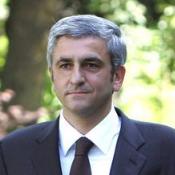
Last week, French Defense Minister Hervé Morin told an informal meeting of European Union defense ministers in Ghent that if they did not pool their defense capabilities more effectively, Europe risked becoming a protectorate. “Fifty years from now we’ll become a pawn in the balance between the new powers,” Morin said, “and we’ll be under a Sino-America condominium.” Morin’s provocative remarks were triggered by recent cuts in European defense budgets, which reinforce longstanding downward trends in military spending on the continent. The question facing the EU is whether the cuts will finally impel European governments to cooperate more closely in […]
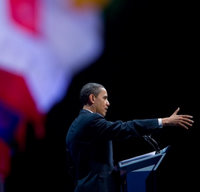
On Sept. 12, after months of negotiations, the Basel Committee on Banking Supervision, a historically low-profile international institution, announced that its participants had agreed to new international minimum capital standards for banks. Scheduled to be phased in carefully over the next eight years, the new agreement — informally referred to as Basel III — represents the most significant set of international financial regulations to emerge since the onset of the global financial crisis. Yet, to succeed, Basel III depends entirely on national governments voluntarily following through on implementing and maintaining the new standards. As a result, distributional consequences across countries […]

According to virtually all global warming projections, humanity faces significantly more conflict in the decades ahead as we fight over dwindling resources in climate-stressed lands. However, those reports typically overlook one likely outcome that could counterbalance the more negative impacts of global warming — that of northern territories becoming significantly milder, more accessible, and, most intriguingly, more hospitable to immigration. This is the essential good news to be found in Laurence C. Smith’s fascinating new book, “The World in 2050.” The ambitious title is perhaps a bit misleading, for where Smith really delivers is on the subtitle: “Four Forces Shaping […]
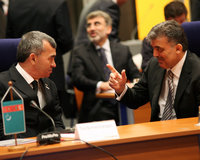
On Sep. 6, the European Investment Bank, the European Bank for Reconstruction and Development, and the International Financial Corporation (a branch of the World Bank Group) signed a mandate letter with the consortium behind the Nabucco natural gas pipeline, marking the start of an appraisal process that will eventually secure a €4 billion financing package for the project. The three international financial institutions committed €2 billion, €1.2 billion and €800 million, respectively. Along with the more modest €200 million grant provided by the European Commission last March, the contributions will certainly boost confidence in the project among private investors, who […]
Brazil may be backing out of an expected fighter jet deal with France, while Russia opened an international tender for amphibious command vessels, a contract thought to be all but signed with France. In an e-mail interview, Jean-Pierre Maulny, deputy director of the Institut de Relations Internationales et Strategiques, discusses the current state of the French defense industry. WPR: What have the French defense industry’s export strengths been historically? Jean-Pierre Maulny: Historically, exports represent about 33 percent of the French defense industry’s total revenue, or about €5 billion per year. According to the French government, the trend for defense exports […]
MADRID — For more than 40 years, the separatist terrorist group Basque Homeland and Freedom (ETA) was a major force in Spanish politics and society. The group’s attacks claimed more than 800 lives, including many senior government officials, and in its prime, it exerted de facto control over vast swathes of the Basque Country, in both Spain and France. This combination of hard and soft power allowed the group to define the parameters not only of the political and academic debates over Basque autonomy, but also of wider discussions of regionalism in the late-Franco-era and, later, in democratic Spain. However, […]
From Judy Dempsey, describing China’s increasing reach in Eastern Europe: From the Baltic states to the Balkans, Chinese companies, flush with money, are buying real estate and competing for public infrastructure contracts, especially as Poland and Ukraine work at breakneck speed to jointly play host to the 2012 European soccer championship. I’d already seen some suggestion that Brazil was also turning to China for expertise and support in advance of hosting the World Cup in 2014 and Olympics in 2016. The 2008 Beijing Olympics were seen at the time through the prism of soft power — China’s coming out party. […]
If you haven’t been following the U.K.’s defense review, it might come as a surprise to learn that things seem to have gotten a bit panicky in the land of the stiff upper lip. This post by Rob Dover at Kings of War strikes a downright un-British note in its sense of impending doom. In a column that I flagged last week, Michael Clarke summed up the problem facing British defense and strategic planners when he wrote, “The long term may be difficult, but the short term is near impossible.” Of course, no one forced the British to follow the […]
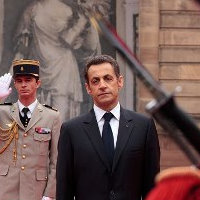
Last week’s brazen kidnapping of seven foreigners, including five Frenchmen, by al-Qaida-linked militants in a uranium mining town in Niger has increased pressure on both France and the European Union to become more militarily involved in the region’s fight against jihadists. The kidnapping threatens France’s major source of uranium for its nuclear power plants, calls into question the practice by some European governments of paying ransoms to free hostages, and throws down the gauntlet for the EU in its counterterrorism efforts. In response to the abductions, French Foreign Minister Bernard Kouchner and seven of his European counterparts urged EU foreign […]
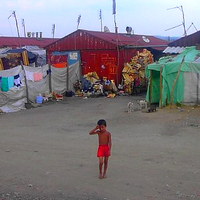
Last week, the controversy over France’s expulsions of illegal Roma immigrants reached a peak, when EU Justice Commissioner Viviane Reding implicitly compared the policy to those of Nazi Germany. Calling for legal action against France, Reding said, “Discrimination on the basis of ethnic origin or race has no place in Europe,” adding, “I thought Europe would not have to witness [this] again after the Second World War.” Reding’s remarks came after French media leaked an internal Interior Ministry memo from early August ordering the dismantling of 300 camps, with the Roma settlements singled out as “priority.” The French government had […]
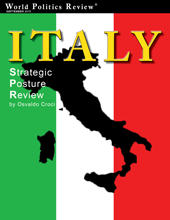
The main external influence on a state’s foreign and security policies is the structure of the international system. Prudent states act within the constraints determined by both the distribution of power in the system and their own position in it. As the international system changes, so, too, do its systemic constraints, with national foreign and security policies also likely to undergo changes as a result. Other factors determining the type of security policies a state adopts include national security culture as well as state capacity. In line with this theoretical approach, this review will discuss how the changing systemic constraints […]
With the Great Euro Panic of 2010 drawing to a close and the Great Post-Lisbon Hype long since put to bed, the season for sober analysis of the EU’s malaise is upon us, and Henry Farrell’s insightful essay (via Art Goldhammer) doesn’t disappoint. What I like most is Farrell’s observation that, if the EU is in desperate need of a new raison d’être, it’s not due to some inherent weakness or shortcoming. Rather, it’s in part because its original rationale has been a victim of the union’s success at home, and in part because the union’s alternative model of peaceful […]
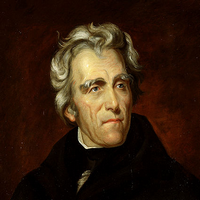
A great deal of ink has been spilled on the domestic trajectory of the “Tea Party” movement, which is demonstrating its growing clout within the ranks of the Republican party and could end up playing a decisive factor in the 2010 midterm congressional elections. But less attention has been given to the foreign policy implications of the Tea Party’s possible ascendancy. Even if the Republicans take back control of both houses of Congress this fall, the Tea Party is unlikely to play a major role in shaping U.S. foreign policy. However, its perspective will shape popular perception, and its counsel […]
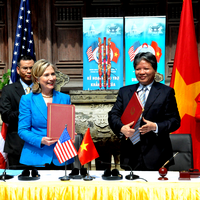
Nuclear energy’s recent renaissance has seen the United States firm up nuclear cooperation agreements with a number of emerging nuclear nations. However the most eye-catching so far is the proposed deal with Vietnam, which stands out not only for its departure from the standard template of such deals, as epitomized by the U.S.-UAE nuclear agreement, but also because it comes at a time when Sino-American interests have been at odds in the South China Sea. More broadly, the deal reflects the unfolding American strategy to counter Chinese assertiveness in the Asia-Pacific region. Nonproliferation hawks are up in arms that the […]
I had the pleasure of participating in a France 24 panel discussion program on Monday, but which was just posted online yesterday. The subject was Turkey’s role in the Middle East and its EU accession prospects in the aftermath of last Sunday’s referendum. Part one can be found here. Part two can be found here. This was another one where I managed to express everything I had in mind. I might have added my “Turkey as Rorschach test” theory, whereby what analysts say about Turkey reveals more about them than about Turkey. But I think it comes across in the […]
